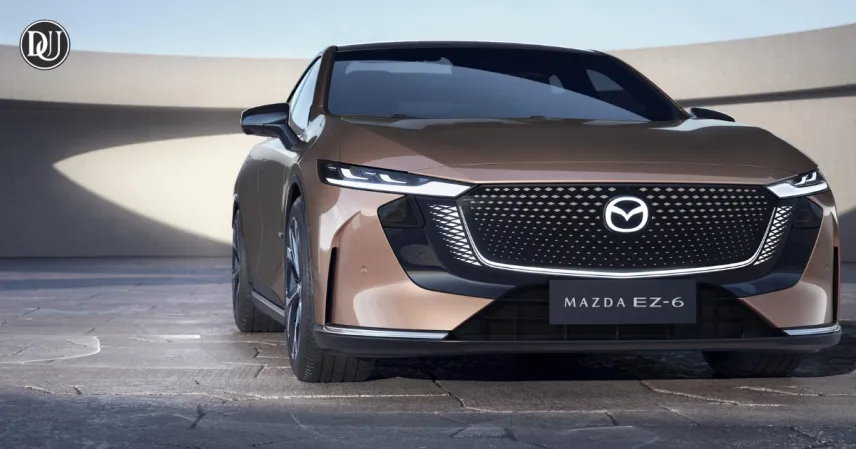You know how sometimes a company just *gets* it? Like, they see the writing on the wall and make a smart play that just clicks? Well, something caught my attention today about Mazda, and it feels exactly like that. We've seen a lot of buzz around electric vehicles, and honestly, Mazda has been a bit quieter in that space compared to some of the big players. But now, it looks like they’re making a serious move: they’re building their very first EV right there in Japan, and they’re betting big on a high-tech, flexible factory to help them beat those pesky tariffs. I found this fascinating because it’s not just about making an EV; it’s about a really clever strategy. What does this mean for us, the drivers? Let's talk about it!
A Homegrown EV and a Smart Factory Play
Let's be honest, the EV market is getting crowded, and breaking in can be tough. But Mazda, known for its unique driving feel and sleek designs, seems to be approaching this challenge with a fresh perspective. Instead of outsourcing or building huge, dedicated EV plants right off the bat, they’re starting production of their first electric vehicle at home in Japan. This isn't just a matter of pride; it’s a strategic choice, especially when you consider what they’re doing with their manufacturing.
Here’s what’s really happening, based on what I’m seeing:
- First EV in Japan: This is a big deal! It signifies Mazda's official deep dive into mass EV production. Building it domestically could mean tighter quality control and a strong initial launch for their electric future.
- High-Tech, Flexible Factory: This is where it gets interesting. Instead of building a completely new, separate factory just for EVs (which is super expensive, by the way), Mazda is likely adapting an existing plant, probably their Hofu facility. Why is this important?
- Flexibility: A flexible factory means they can switch between producing gasoline, hybrid, and electric vehicles on the same line. Think of it like a master chef who can whip up different cuisines in the same kitchen – super efficient!
- Cost-Effective: This approach saves a ton of money compared to building new facilities from scratch, which means they can potentially keep costs down on the final EV, which is always good news for us.
- Tariff Buster: Now here’s where it gets really smart. By building in Japan, they can avoid or at least mitigate some of the rising global tariffs and trade barriers that affect cars imported from other countries. It's like finding a shortcut around heavy traffic!
![]()
Now, I know what you’re thinking: “Mazda making an EV? What will it be like?” While we don't have specific model details yet, the commitment to a high-tech, flexible approach suggests they're serious about integrating EVs seamlessly into their current production, hinting at their signature driving dynamics carrying over.
What This Actually Means for Us and the Future of EVs
So, what does this actually mean for us, the consumers, and the broader EV market? For starters, it means another player is stepping up in the electric vehicle game, and that’s always a good thing for competition and innovation. More choices for us, right? Plus, Mazda's focus on a flexible factory could set a precedent for other, smaller automakers who might not have the massive capital to build entirely new EV-only plants. It's a smart model for scaling up EV production efficiently.
This strategy also highlights the growing importance of regional manufacturing in the face of global trade tensions. If you’re an American or European buyer, for example, a Japan-built Mazda EV might face fewer tariff-related price hikes compared to vehicles from other regions. It impacts the final sticker price, which we all care about, honestly. This got me thinking about how global politics really do affect what cars we can buy and for how much. Makes you wonder, doesn't it?
Bottom Line: Mazda's Playing the Long Game in EVs!
Ultimately, Mazda’s decision to build its first EV in Japan using a high-tech, flexible factory is a really savvy move. It allows them to enter the electric market strategically, manage costs, and navigate complex global trade policies. It signals that Mazda isn't just jumping on the EV bandwagon; they're thinking long-term about how to build and sell electric cars efficiently and competitively. It's a subtle but significant shift. Are you excited to see what Mazda brings to the EV table with this new strategy, or do you think they're too late to the party?








